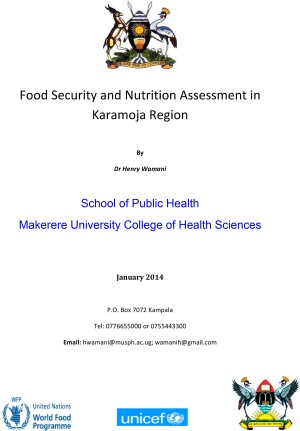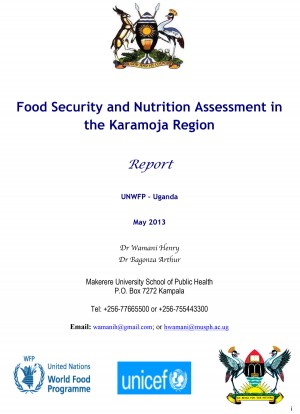The 2022 Humanitarian Crisis in Karamoja: Findings from a real-time review
Food Security
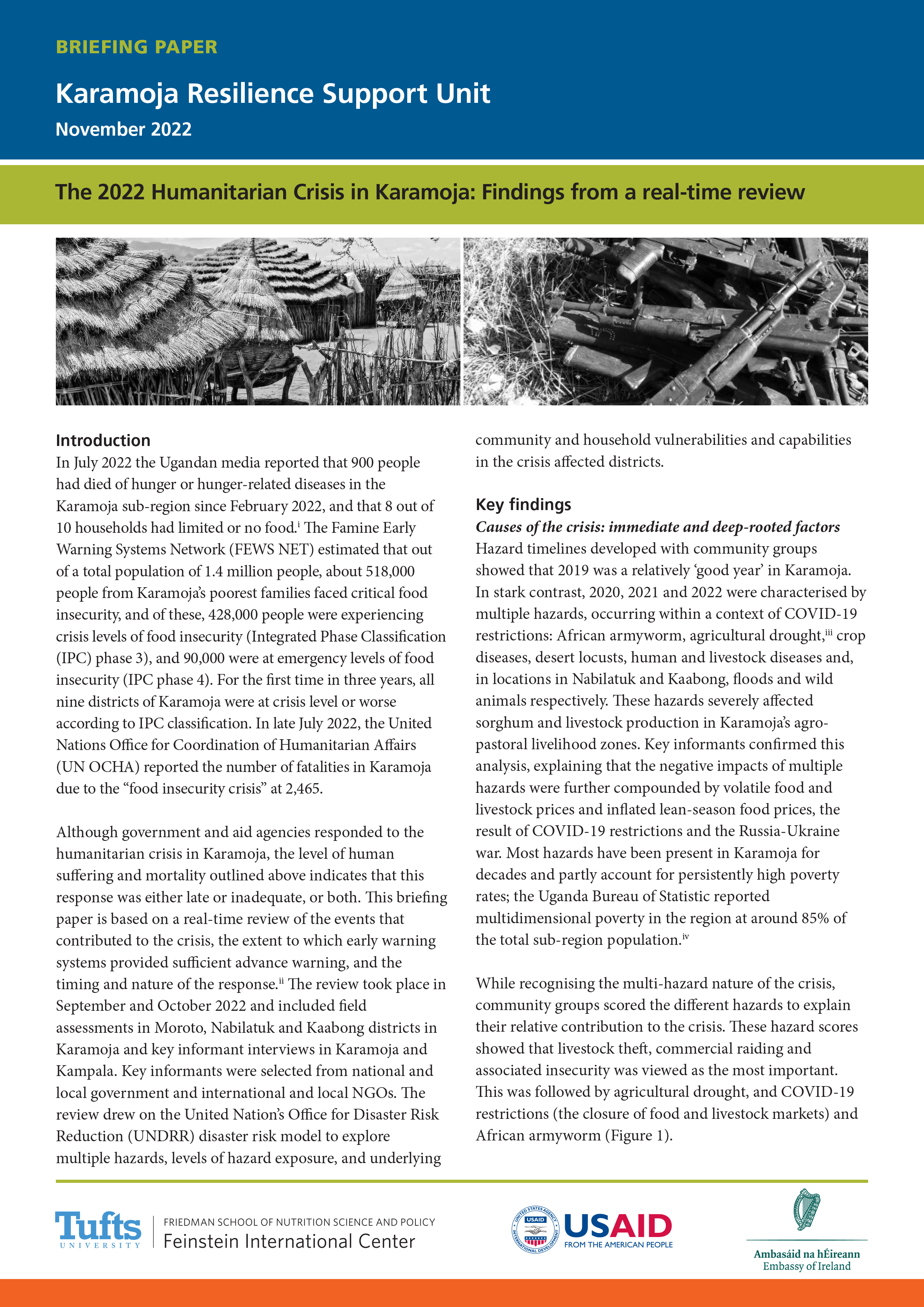
The 2022 Humanitarian Crisis in Karamoja: Findings from a real-time review
In July 2022 the Ugandan media reported that 900 people had died of hunger or hunger-related diseases in the Karamoja sub-region since February 2022, and that 8 out of 10 households had limited or no food.i
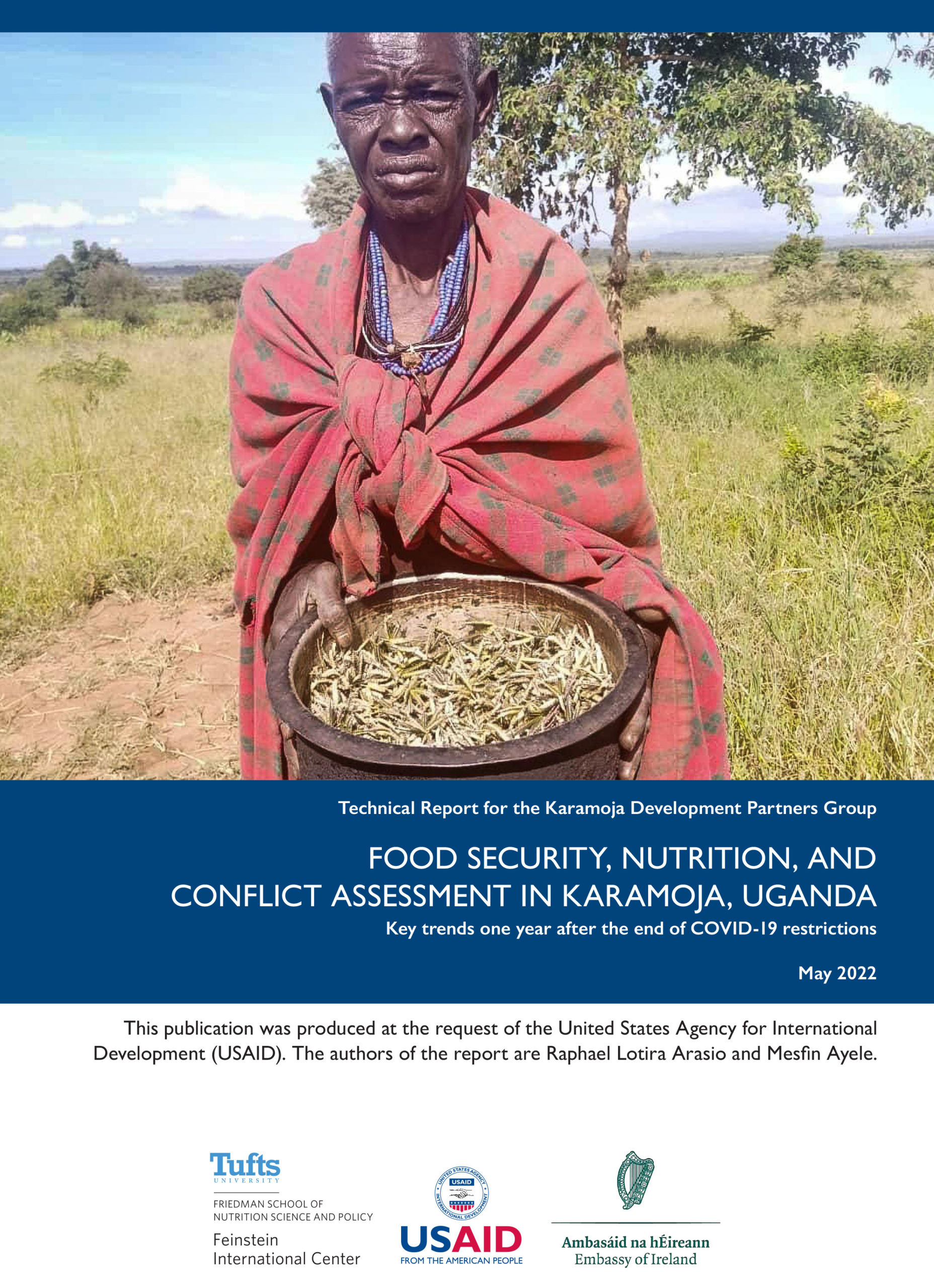
Food Security, Nutrition, and Conflict Assessment in Karamoja, Uganda
In mid-2020, the Karamoja Resilience Support Unit (KRSU) conducted a rapid assessment that described the impact of COVID-19 containment measures on rural livelihoods in Karamoja (Arasio et al. 20201). The assessment also forecast how disease restrictions would affect livelihoods over the following six to eight months (into early 2021). The initial assessment examined household wellbeing during COVID-19 relative to a normal (good) and bad (drought) year in Karamoja’s three main livelihood zones, represented by Amudat District (predominantly pastoralist but with some emerging crop production), Moroto District (predominantly agropastoralist), and Abim District (with high dependence on crop production, but also using livestock).
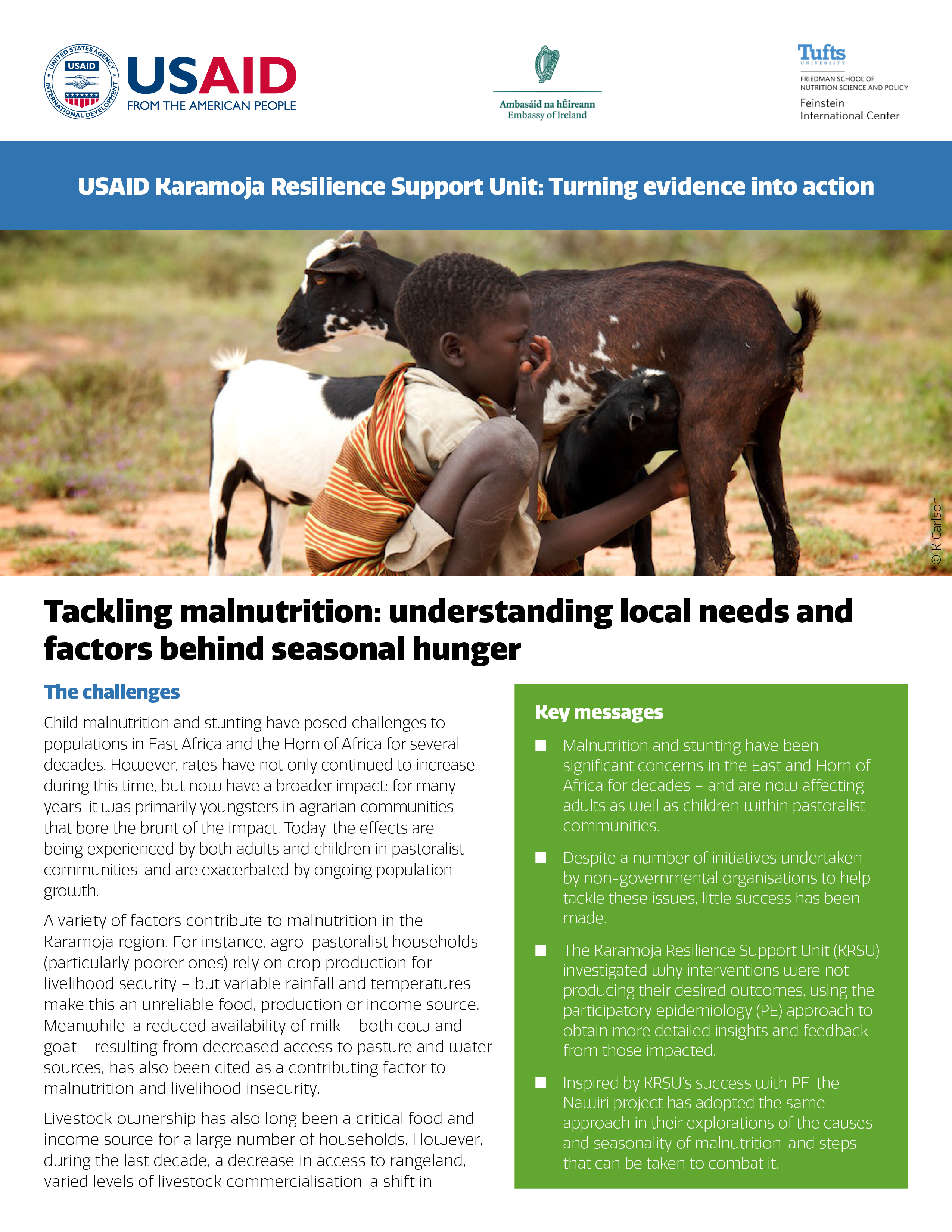
Tackling malnutrition: understanding local needs and factors behind seasonal hunger
Child malnutrition and stunting have posed challenges to populations in East Africa and the Horn of Africa for several decades. However, rates have not only continued to increase during this time, but now have a broader impact: for many years, it was primarily youngsters in agrarian communities that bore the brunt of the impact. Today, the effects are being experienced by both adults and children in pastoralist communities, and are exacerbated by ongoing population growth.
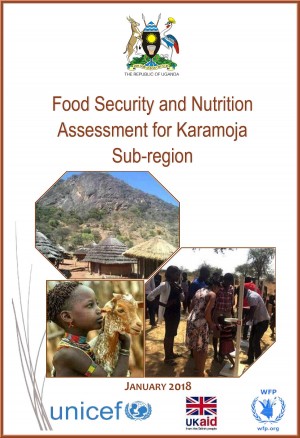
Food Security and Nutrition Assessment for Karamoja Sub-region
The overall aim of the Karamoja FSNA was to determine the extent and severity of malnutrition in different age groups and food security of households as well as monitor selected food security, nutrition, health, water and sanitation indicators to assess programme performance
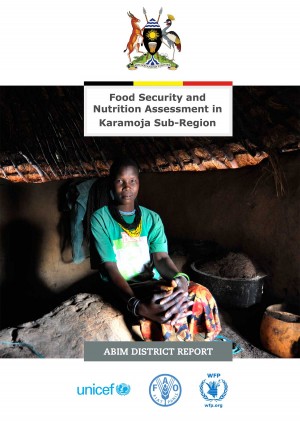
Food Security and Nutrition Assessment in Karamoja Sub-Region – Abim
Abim is one of the districts in Karamoja subregion faced with chronic food insecurity coupled with high levels of malnutrition that are of public health concern.
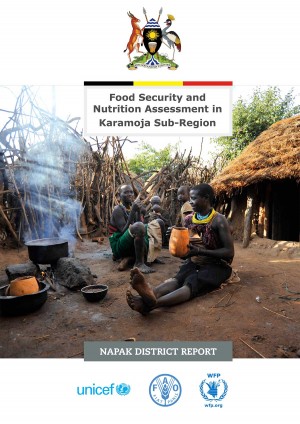
Food Security and Nutrition Assessment in Karamoja Sub-Region – Napak District Report
Napak is one of the districts in the Karamoja sub-region faced with chronic food insecurity coupled with high levels of malnutrition that are of public health concern.
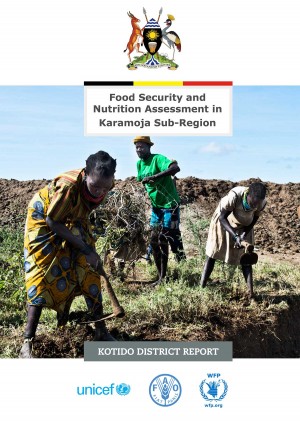
Food Security and Nutrition Assessment in Karamoja Sub-Region – Kotido
Kotido is one of the districts in the Karamoja sub-region faced with chronic food insecurity coupled with high levels of malnutrition that are of public health concern.
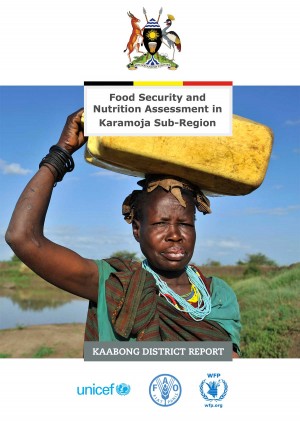
Food Security and Nutrition Assessment in Karamoja Sub-Region – Kaabong
Kaabong is one of the districts in the Karamoja sub-region faced with chronic food insecurity coupled with high levels of malnutrition that are of public health concern.
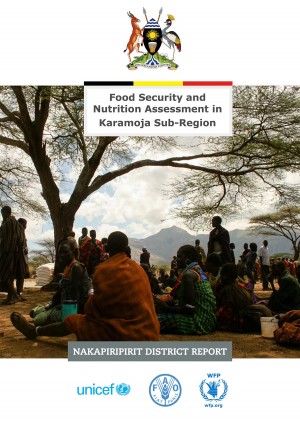
Food Security and Nutrition Assessment in Karamoja Sub-Region – Nakapiripirit
Nakapiripirit is one of the districts in the Karamoja sub-region faced with chronic food insecurity coupled with high levels of malnutrition that are of public health concern.
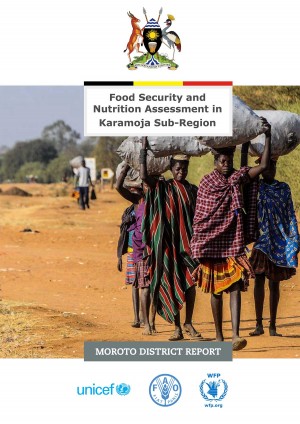
Food Security and Nutrition Assessment in Karamoja Sub-Region – Moroto
Moroto is one of the districts in the Karamoja sub-region faced with chronic food insecurity coupled with high levels of malnutrition that are of public health concern.
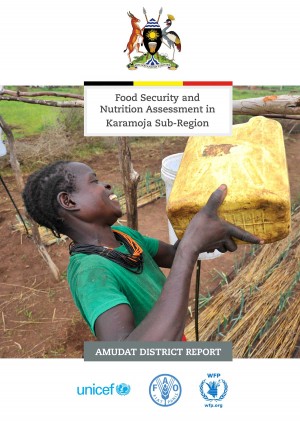
Food Security and Nutrition Assessment in Karamoja Sub-Region – Amudat
Amudat is one of the districts in the Karamoja sub-region faced with chronic food insecurity coupled with high levels of malnutrition that are of public health concern.
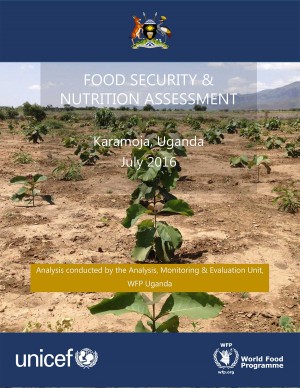
Food Security and Nutrition Assessment
Overall food security classification shows that half of the population in Karamoja (50%) is food insecure, of which 12% were found to be severely food insecure.
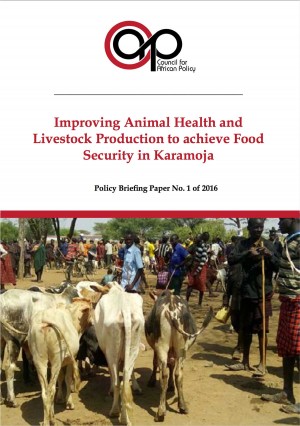
Improving Animal Health and Livestock Production to achieve Food Security in Karamoja
This policy brief is an opportunity to give a picture of the desirability of using livestock to improve livelihoods in the Karamoja region by taking advantage of existing policies or propose new ideas that will help exploit the potential of the livestock resource in Karamoja.
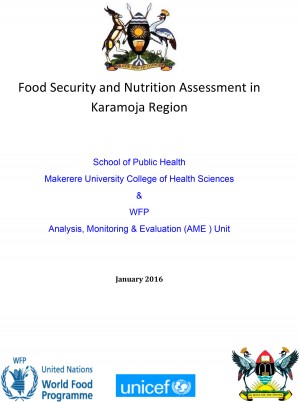
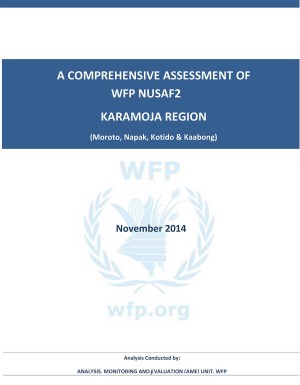
A Comprehensive Assessment of WFP NUSAF2 Karamoja Region
The key objective of the assessment was a follow-up to the NUSAF2 assessment of 2013 in order to monitor outcomes on an annual basis
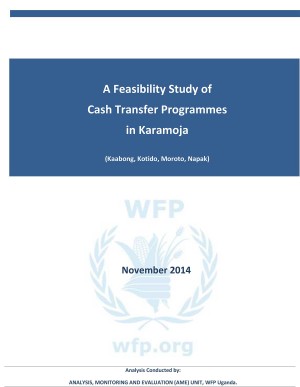
A Feasibility Study of Cash Transfer Programmes in Karamoja
The assessment reached over 1,100 households and primarily sought to assess the food security status of WFP beneficiaries and key aspects of market functionality with the view to inform potential cash/voucher programming in Karamoja.
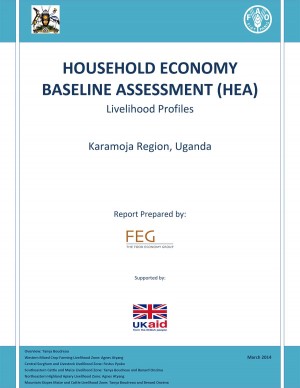
Household Economy Baseline Assessment (HEA)
This assessment was conducted in order to provide a solid base of livelihoods-related evidence to inform a 27-month (October 2013 – December 2015) FAO-implemented project in Karamoja sub-region titled “Strengthening Adaptive Capacity of Agro-Pastoral communities and the Local Government to Reduce Impacts of Climate Risk on Livelihoods in Karamoja, Uganda.
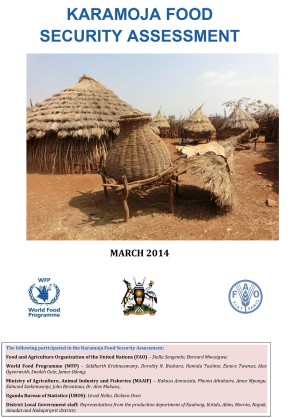
Karamoja Food Security Assessment
February 2014 assessment of food security for the region. The main causes of current household food insecurity in Karamoja can be attributed to a combination of reduced access to food and insufficient food production (availability) across the region.
